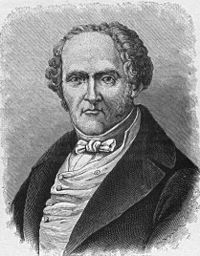اقتصاد اشتراكي
 |
| جزء من سلسلة عن |
| الأنظمة الاقتصادية |
|---|
|
|
الاقتصاد الاشتراكي Socialist economics، يتألف من economic theories, practices, and norms of hypothetical and existing socialist economic systems.
A socialist economic system is characterised by social ownership and operation of the means of production[1][2][3][4][5][6] that may take the form of autonomous cooperatives or direct public ownership wherein production is carried out directly for use. Socialist systems that utilize markets for allocating inputs and capital goods among economic units are designated market socialism. When planning is utilized, the economic system is designated as a socialist planned economy. Non-market forms of socialism usually include a system of accounting based on calculation-in-kind to value resources and goods.[7][8]
The term "socialist economics" may also be applied to the analysis of former and existing economic systems that were implemented in socialist states, such as in the works of Hungarian economist János Kornai.[9]
Socialist economics has been associated with different schools of economic thought. Marxian economics provided a foundation for socialism based on analysis of capitalism, while neoclassical economics and evolutionary economics provided comprehensive models of socialism. During the 20th century, proposals and models for both planned economies and market socialism were based heavily on neoclassical economics or a synthesis of neoclassical economics with Marxian or institutional economics.
. . . . . . . . . . . . . . . . . . . . . . . . . . . . . . . . . . . . . . . . . . . . . . . . . . . . . . . . . . . . . . . . . . . . . . . . . . . . . . . . . . . . . . . . . . . . . . . . . . . . . . . . . . . . . . . . . . . . . . . . . . . . . . . . . . . . . . . . . . . . . . . . . . . . . . . . . . . . . . . . . . . . . . . .
تاريخ الفكر الاقتصادي الاشتراكي
اشتراكية يوتوپية
الاشتراكية والاقتصاد السياسي الكلاسيكي
الاقتصاد السياسي الاشتراكي قبل ماركس

كارل ماركس ورأس المال
اقتصاد أناركي

بعد ماركس
الخصائص
التخطيط الاقتصادي
مناهضة الرأسمالية
نظريات القيمة الاقتصادية
النماذج والأنظمة الاقتصادية
ديمقراطية اشتراكية
نموذج لانج-لرنر
الاقتصاد المدار ذاتياً
. . . . . . . . . . . . . . . . . . . . . . . . . . . . . . . . . . . . . . . . . . . . . . . . . . . . . . . . . . . . . . . . . . . . . . . . . . . . . . . . . . . . . . . . . . . . . . . . . . . . . . . . . . . . . . . . . . . . . . . . . . . . . . . . . . . . . . . . . . . . . . . . . . . . . . . . . . . . . . . . . . . . . . . .
المشروعات الموجهة للعمال
الاشتراكية المخططة ديمقراطياً
الاشتراكية المجدية
اشتراكية السوق الپراگماتية
الاقتصاد التساهمي
التخصيص المدار حوسبياً
اقتصاد الند للند والمصدر المفتوح
التنسيق التفاوضي
عناصر الاشتراكية عملياً
الاقتصاد المخطط مركزياً
الاقتصاد المختلط ديمقراطياً اشتراكياً
رأسمالية الدولة
الملكية الاشتراكية وإنتاج الند للند
إسپانيا الأناركية
نقد
. . . . . . . . . . . . . . . . . . . . . . . . . . . . . . . . . . . . . . . . . . . . . . . . . . . . . . . . . . . . . . . . . . . . . . . . . . . . . . . . . . . . . . . . . . . . . . . . . . . . . . . . . . . . . . . . . . . . . . . . . . . . . . . . . . . . . . . . . . . . . . . . . . . . . . . . . . . . . . . . . . . . . . . .
انظر أيضاً
- اقتصاد أناركي
- Anarcho-communism
- Basic income
- Collectivist anarchism
- Communism
- Complexity economics
- Collectivism
- Economic calculation debate
- ديمقراطية قاتصادية
- تخطيط اقتصادي
- Evolutionary economics
- Fair trade
- اقتصاد أنثوي
- Gandhian economics
- تاريخ الفكر الاقتصادي
- Indicative planning
- Job guarantee
- اقتصاد العمل
- قائمة الاقتصاديين الاشتراكيين
- اشتراكية السوق
- اقتصاد ماركسي
- تبادلية (نظرية اقتصادي)
- اقتصاد مختلط
- Cooperative stock market
- تأميم
- اقتصا تساهمي
- اقتصاد مخطط
- ما بعد الرأسمالية
- انتاج من أجل الاستخدام
- Public banking
- اشتراكية رتشاردية
- نقابية
- Social dividend
- اقتصاد السوق الاشتراكي
- Socialist mode of production
- Socialization (economics)
- اقتصاد الرفاه
المصادر
- ^ Sinclair, Upton (1918-01-01). Upton Sinclair's: A Monthly Magazine: for Social Justice, by Peaceful Means If Possible.
Socialism, you see, is a bird with two wings. The definition is 'social ownership and democratic control of the instruments and means of production.'
- ^ Nove, Alec. "Socialism". New Palgrave Dictionary of Economics, Second Edition (2008).
A society may be defined as socialist if the major part of the means of production of goods and services is in some sense socially owned and operated, by state, socialized or cooperative enterprises. The practical issues of socialism comprise the relationships between management and workforce within the enterprise, the interrelationships between production units (plan versus markets), and, if the state owns and operates any part of the economy, who controls it and how.
- ^ Rosser, Mariana V. and J Barkley Jr. (July 23, 2003). Comparative Economics in a Transforming World Economy. MIT Press. p. 53. ISBN 978-0262182348.
Socialism is an economic system characterized by state or collective ownership of the means of production, land, and capital.
- ^ "What else does a socialist economic system involve? Those who favor socialism generally speak of social ownership, social control, or socialization of the means of production as the distinctive positive feature of a socialist economic system" N. Scott Arnold. The Philosophy and Economics of Market Socialism : A Critical Study. Oxford University Press. 1998. p. 8
- ^ Busky, Donald F. (20 July 2000). Democratic Socialism: A Global Survey. Praeger. p. 2. ISBN 978-0275968861.
Socialism may be defined as movements for social ownership and control of the economy. It is this idea that is the common element found in the many forms of socialism.
- ^ Bertrand Badie; Dirk Berg-Schlosser; Leonardo Morlino (2011). International Encyclopedia of Political Science. SAGE Publications, Inc. p. 2456. ISBN 978-1412959636.
Socialist systems are those regimes based on the economic and political theory of socialism, which advocates public ownership and cooperative management of the means of production and allocation of resources.
- ^ Market Socialism: The Debate Among Socialists, by Schweickart, David; Lawler, James; Ticktin, Hillel; Ollman, Bertell. 1998. From "The Difference Between Marxism and Market Socialism" (pp. 61–63): "More fundamentally, a socialist society must be one in which the economy is run on the principle of the direct satisfaction of human needs ... Exchange-value, prices and so money are goals in themselves in a capitalist society or in any market. There is no necessary connection between the accumulation of capital or sums of money and human welfare. Under conditions of backwardness, the spur of money and the accumulation of wealth has led to a massive growth in industry and technology ... It seems an odd argument to say that a capitalist will only be efficient in producing use-value of a good quality when trying to make more money than the next capitalist. It would seem easier to rely on the planning of use-values in a rational way, which because there is no duplication, would be produced more cheaply and be of a higher quality"... ..."Although money, and so monetary calculation, will disappear in socialism this does not mean that there will no longer be any need to make choices, evaluations and calculations ... Wealth will be produced and distributed in its natural form of useful things, of objects that can serve to satisfy some human need or other. Not being produced for sale on a market, items of wealth will not acquire an exchange-value in addition to their use-value. In socialism their value, in the normal non-economic sense of the word, will not be their selling price nor the time needed to produce them but their usefulness. It is for this that they will be appreciated, evaluated, wanted. . . and produced."
- ^ "Socialism and Calculation" (PDF). Worldsocialism.org. Archived from the original (PDF) on 2011-06-07. Retrieved February 15, 2010.
{{cite web}}: Unknown parameter|dead-url=ignored (|url-status=suggested) (help) - ^ Kornai, János: The Socialist System. The Political Economy of Communism. Princeton: Princeton University Press and Oxford: Oxford University Press 1992; Kornai, János: Economics of Shortage. Munich: Elsevier 1980. A concise summary of Kornai's analysis can be found in Verdery, Katherine: Anthropology of Socialist Societies. In: International Encyclopedia of the Social and Behavioral Sciences, ed. Neil Smelser and Paul B. Baltes. Amsterdam: Pergamon Press 2002, available for download at [1].
قراءات إضافية
- Albert, Michael & Hahnel, Robin: The Political Economy of Participatory Economics, Princeton University Press, 1991. (Available online)
- Amin, Samir: Spectres of Capitalism: A Critique of Current Intellectual Fashions, 1998, Monthly Review Press
- Carson, Kevin, Studies in Mutualist Political Economy (BookSurge Publishing, 2007). ISBN 978-1-4196-5869-3
- Cole, G.D.H.: Socialist Economics, 1950, London: Victor Gollancz Ltd.
- G.A. Cohen: If you're an Egalitarian, How Come You're So Rich?: Harvard UP
- Horvat, Branko: The Political Economy of Socialism, 1982, M.E. Sharpe, Inc.
- Kaser, Michael C: Soviet Economics, 1970 London: World University Library/ Weidenfeld & Nicolson. ISBN 0-303-17565-6
- Kennedy, Liam (ed.): Economic Theory of Co-operative Enterprises: Selected Readings, 1983, The Plunkett Foundation for Co-operative Studies.
- Lebowitz, Michael A.: Beyond Capital, Marx's Political Economy of the Working Class, 1992, 2003, Palgrave.
- Noel Thompson Left in the Wilderness: The Political Economy of British Democratic Socialism since 1979 2002, Acumen Publishing ISBN 1-902683-54-4
- Sweezy, Paul M.: The Theory of Capitalist Development, 1942, Monthly Review Press.
- Veblen, Thorstein: The Theory of the Leisure Class: An Economic Study of Institutions, 1899, New York Macmillan Company.
- Von Mises, Ludwig, Socialism.
- Makoto Itoh, Political Economy of Socialism.
- Various authors. The Accumulation of Freedom: Writings on Anarchist Economics. AK Press. (2012) ISBN 978-1-84935-094-5